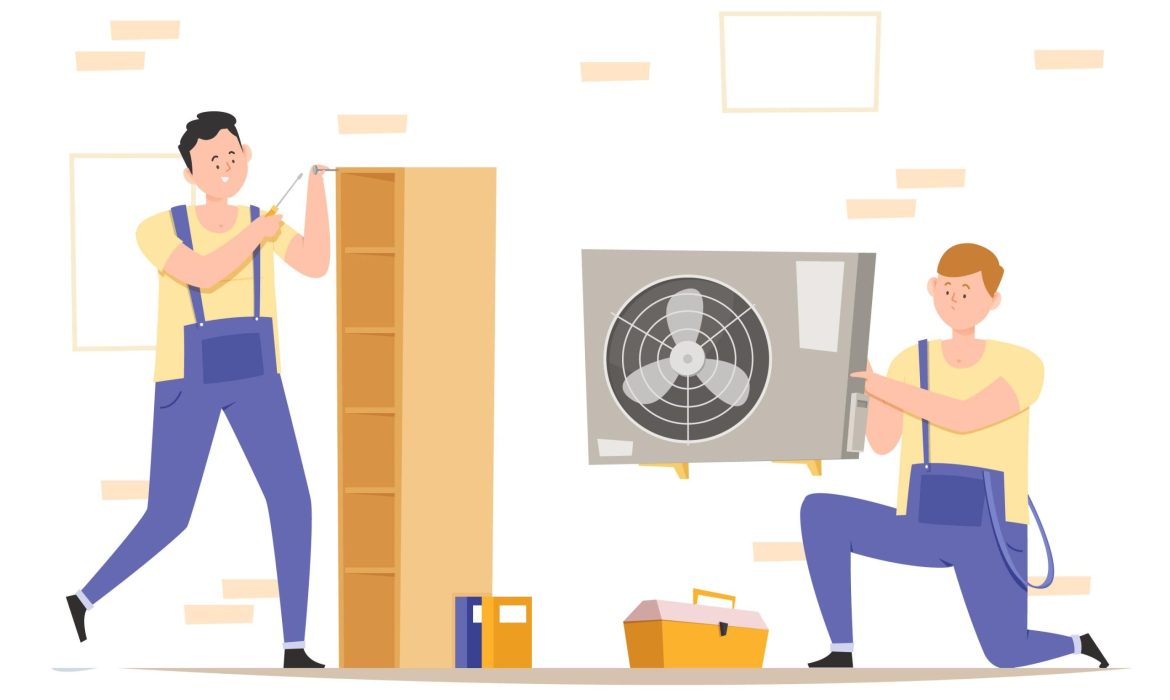Electrical hazards are often hidden in plain sight within our homes, posing risks of shocks, fires, and even fatalities. Understanding these common dangers and learning how to prevent them is critical to maintaining a safe environment for your family. Here’s a closer look at the most common household electrical hazards and how you can prevent them with the help of Jinnie, your trusted partner in home electrical services.
1. Exposed or Damaged Wiring
Exposed wiring is one of the most common yet overlooked electrical hazards. Over time, wires may become frayed due to wear and tear, pet damage, or being pinched behind furniture. Exposed wires can lead to shocks or fires if they come into contact with flammable materials.
Prevention Tips:
- Regularly inspect cords and wiring around your home.
- Replace damaged cords immediately to prevent potential shocks.
- Avoid running electrical cords under rugs or furniture, as this can cause them to wear down faster.
- Have a professional electrician from Jinnie repair or replace any exposed or damaged wiring to ensure your home’s safety.
2. Overloaded Outlets and Power Strips
Overloading outlets or power strips by plugging in too many devices can lead to overheating, sparking, or fires. This is especially common in older homes where electrical systems weren’t designed to handle the high power demand of modern appliances.
Prevention Tips:
- Use power strips with built-in circuit breakers, which automatically shut off when overloaded.
- Spread out devices across multiple outlets to avoid overloading a single one.
- Upgrade your home’s electrical system if it cannot handle your current power needs. Jinnie can assess your home’s capacity and provide upgrades, such as additional circuits or modern outlets, to safely distribute electrical load.
3. Water and Electricity: A Dangerous Combination
Water is a conductor of electricity, which makes electrical devices and outlets in kitchens, bathrooms, and outdoor areas especially risky. Using appliances near water or having exposed outlets near sinks increases the chances of electric shock.
Prevention Tips:
- Keep all appliances and cords away from sinks, bathtubs, and other wet areas.
- Always dry your hands before touching electrical devices.
- Install Ground Fault Circuit Interrupters (GFCIs) in moisture-prone areas to prevent shock. Jinnie’s electricians can expertly install GFCIs throughout your home, ensuring safety in areas like the kitchen, bathroom, and outdoors.
4. Improper Use of Extension Cords
Extension cords are convenient, but they are not meant for permanent use. Improper use of extension cords, such as plugging in too many devices or using them as permanent wiring, can cause overheating, electrical fires, and other hazards.
Prevention Tips:
- Use extension cords only temporarily and never for permanent wiring.
- Choose the right extension cord for the job – heavy-duty cords are best for high-power devices.
- Avoid daisy-chaining multiple extension cords together.
- For permanent solutions, consult with Jinnie to install additional outlets or circuits where needed.
5. Old or Faulty Electrical Appliances
Older electrical appliances may not meet modern safety standards and could have worn-out wiring, increasing the risk of fire or electric shock. Appliances that emit a burning smell, make strange noises, or show signs of wear should be repaired or replaced.
Prevention Tips:
- Regularly inspect your appliances for signs of wear or damage.
- Unplug appliances when not in use.
- Replace older appliances that no longer function properly.
- Consider scheduling an inspection with Jinnie to evaluate the safety of your electrical appliances and suggest repairs or replacements as needed.
6. Outdated or Poorly Maintained Electrical Panels
An outdated or poorly maintained electrical panel is a major hazard, particularly in older homes. These panels may not be able to handle the power load of modern households, leading to frequent circuit breaker trips, overheating, or even fires.
Prevention Tips:
- Regularly check your electrical panel for signs of wear, such as burn marks, corrosion, or a smell of burning plastic.
- If your home is over 30 years old, consider upgrading your electrical panel to meet modern safety standards.
- Jinnie can provide professional panel upgrades, ensuring your home’s electrical system is equipped to handle modern power demands safely and efficiently.
7. Misuse of Light Fixtures
Using the wrong wattage bulb in a light fixture can cause overheating and fires. Light bulbs that are too powerful for the fixture they are placed in are a common cause of household fires.
Prevention Tips:
- Always check the maximum wattage rating of your light fixtures and ensure you’re using the correct bulb.
- Use energy-efficient LED bulbs, which produce less heat and are safer for prolonged use.
- Jinnie can help with safe installation and inspection of light fixtures, ensuring they are properly wired and free of hazards.
How Jinnie Helps Prevent Electrical Hazards
Preventing electrical hazards requires regular inspections, proper maintenance, and an understanding of potential dangers. Jinnie offers a range of services to help you maintain a safe home environment:
- Electrical Inspections: Jinnie’s professionals conduct thorough inspections to identify and address any electrical hazards in your home. They can help you spot hidden dangers, like faulty wiring or overloaded circuits, before they cause harm.
- Repairs and Upgrades: If hazards are detected, Jinnie can make the necessary repairs or upgrades to ensure your home’s electrical system is safe and up to code.
- Childproofing and GFCI Installation: Jinnie specializes in installing safety devices such as GFCIs and childproof outlet covers to protect your family from shocks and other hazards.
Conclusion: Prioritize Electrical Safety in Your Home
By identifying and addressing common electrical hazards in your home, you can protect your family from accidents and potential fires. Regular maintenance, proper use of appliances, and ensuring your electrical system is up to modern standards are key to reducing risks. Jinnie is your partner in electrical safety, providing expert inspections, repairs, and preventive measures to keep your home hazard-free.
Don’t wait until a hazard turns into a disaster—schedule an inspection with Jinnie today and take proactive steps to prevent electrical accidents in your home.



